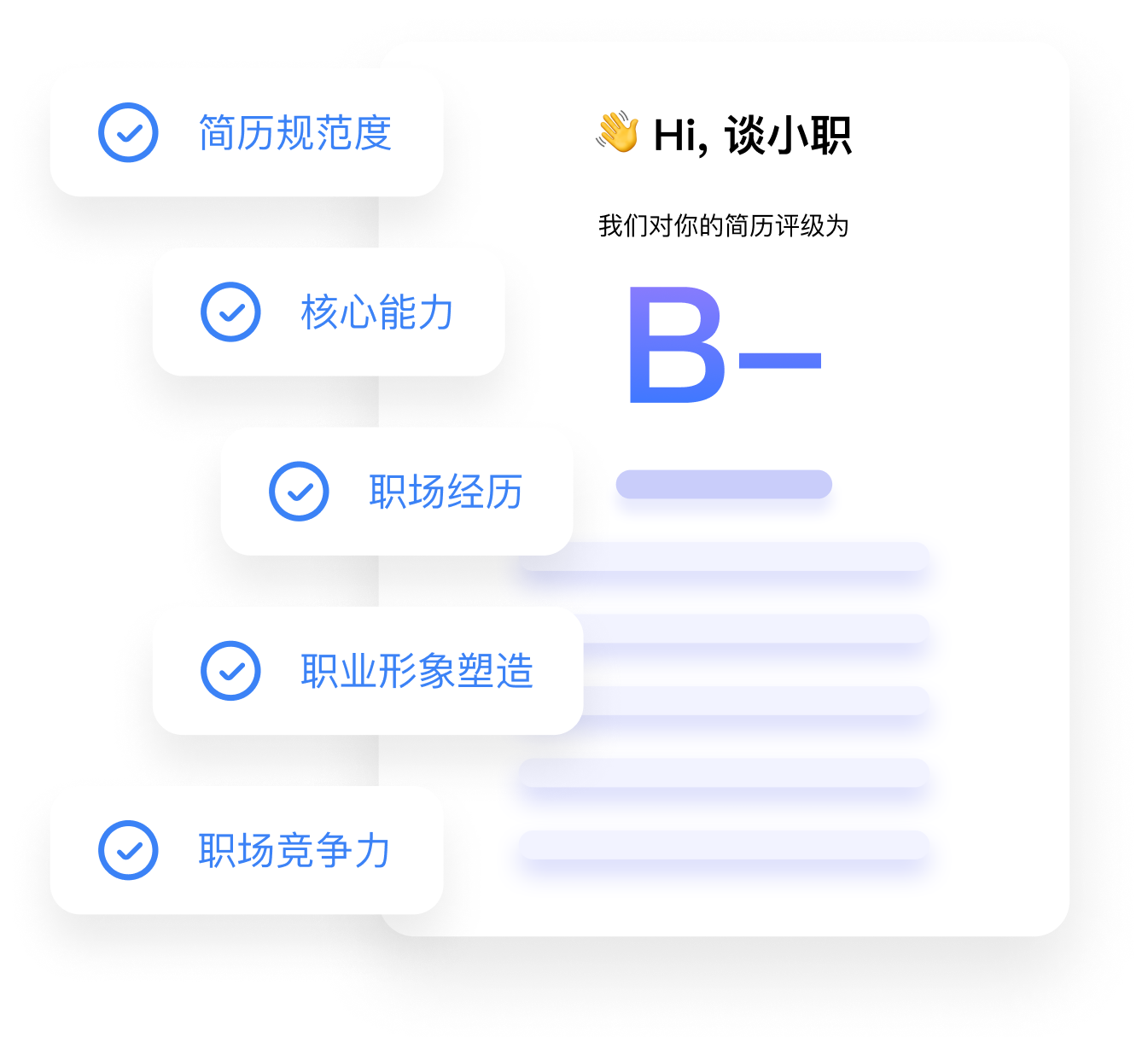SQE 供应商质量工程师
1.2-1.7万宁波市本科不限经验
职位描述
Summary of Position
Supplier management is a key part of supply chain management. Under the leadership of the Head of Procurement, establish a sound system for supplier admission, assessment, and elimination, monitor suppliers, strengthen problem handling and improvement, establish long-term cooperation, cost optimization, quality standards, and other goals for suppliers, build process management for the company's supply chain, jointly develop cost reduction plans or technological upgrades with strategic suppliers, and achieve two-way value-added.
岗位概述
供应商管理是企业供应链管理中的核心环节。在采购负责人领导下,建立健全供应商准入、考核和淘汰制度,对供应商绩效进行监控,加强问题处理和改进,建立供应商长期合作、成本优化、质量提高等目标,为公司供应链搭建流程化管理,与战略供应商联合开发降本方案或技术升级,实现双向增值。
Main responsibilities
主要职责
Supplier Development and Evaluation
- Develop a supplier sourcing strategy based on company needs and establish a Approved Vendor List (AVL)
- Develop supplier admission standards and participate in supplier selection decisions
- Lead the supplier qualification review process (such as factory audit, quality system assessment, capacity verification, etc.)
- Responsible for the qualification review, on-site evaluation, and quality system certification of new suppliers (such as ISO 9001/14001, etc.)
供应商开发与评估
- 根据公司需求制定供应商寻源策略,建立合格供应商名录(AVL);
- 制定供应商准入标准,参与供应商选择决策;
- 主导供应商资质审核流程(如工厂审核、质量体系评估、产能验证等);
- 负责新供应商的资质审核、现场评估及质量体系认证(如ISO 9001/14001等);
Quality monitoring and improvement
- To lead supplier product quality issues (IQC issues) and conduct root cause analysis of customer quality complaints
- Track the effectiveness of corrective and preventive actions (CAPA) taken by suppliers to ensure closed-loop management
- Supervise the production and installation process of suppliers to ensure that raw materials/components meet quality requirements (such as size, performance, reliability, etc.)
- Drive continuous improvement of suppliers (such as 8D reports, 5Why analysis) to reduce defect rates
质量监控与改进
- 主导供应商产品质量问题(IQC问题)及客户端质量投诉的根因分析
- 跟踪供应商纠正预防措施(CAPA)的有效性,确保闭环管理
- 监督供应商生产和安装过程,确保原材料/零部件符合质量要求(如尺寸、性能、可靠性等)
- 推动供应商持续改进(如8D报告、5Why分析),降低不良率
Supplier performance monitoring
- Establish a supplier KPI assessment system (such as quality pass rate, on-time delivery rate, service response, etc.), and regularly release quality scores.
- Interview, coach, or propose the elimination of low performing suppliers.
- Establish a supplier KPI system (such as), regularly evaluate and rank.
- Analyze supplier performance data, identify high-risk or inefficient suppliers, and drive improvement or elimination.
供应商绩效监控
- 建立供应商KPI考核体系(如质量合格率、交货准时率、服务响应等),定期发布质量评分
- 对低绩效供应商进行约谈、辅导或建议淘汰
- 建立供应商KPI体系(如等),定期评估并排名
- 分析供应商绩效数据,识别高风险或低效供应商,推动改进或淘汰流程
Cross-departmental collaboration
- Coordinate the technical/demand coordination between internal departments and suppliers.
- Integrate technology, procurement, breeding, and processing departments to optimize technical standards and acceptance processes
- Participate in new project development and identify supply chain quality risks in advance (such as DFMEA).
- Regularly hold business review meetings (QBR) with suppliers to strengthen long-term cooperative relationships.
跨部门协作
- 协调内部部门与供应商的技术/需求对接
- 联动技术、采购、养殖和加工部门,优化技术标准与验收流程
- 参与新项目开发,提前识别供应链质量风险(如DFMEA)
- 定期与供应商召开业务回顾会议(QBR),强化长期合作关系
Cost optimization and innovation
- -Promote supplier cost reduction plans (such as VAVE value engineering and large-scale procurement) to enhance supply chain cost-effectiveness.
- -Guide suppliers to participate in new product development and provide technical or resource support.
成本优化与创新
- 推动供应商降本计划(如VAVE价值工程、规模化采购),提升供应链性价比
- 引导供应商参与新产品开发,提供技术或资源支持
Risk Management and Compliance
- Ensure that suppliers comply with the company's supplier guidelines and various procurement policies.
- Monitor supply chain risks (such as capacity bottlenecks, raw material fluctuations, policy and regulatory changes) and develop emergency plans.
- Ensure that suppliers comply with corporate social responsibility (such as environmental protection, labor standards) and industry regulatory requirements.
风险管理与合规
- 确保供应商符合公司供应商准则以及各项采购方针政策
- 监控供应链风险(如产能瓶颈、原材料波动、政策法规变化),制定应急预案
- 确保供应商符合企业社会责任(如环保、劳工标准)及行业法规要求
Contract and Dispute Management
- Supervise the performance of supplier contracts (such as delivery terms, quality agreements, confidentiality agreements).
- Handle supplier defaults or disputes, coordinate with legal, financial and other departments to develop solutions.
合同与纠纷管理
- 监督供应商合同履行情况(如交货条款、质量协议、保密协议)
- 处理供应商违约或纠纷,协调法律、财务等部门制定解决方案
Required competence
所需技能要求
- Familiar with the entire lifecycle process of supplier development, evaluation, performance management, and exit mechanisms
- Master specific industry standards and be familiar with the supply chain characteristics of related industries
- Ability to analyze Total Cost of Ownership (TCO) and drive cost reduction (such as negotiation and large-scale procurement)
- Capable of analyzing data such as supplier on-time delivery rate, defect rate, and cost fluctuations, proficient in using Excel (pivot tables, VLOOKUP), Power BI, ERP/SRM systems
- Strong negotiation and communication skills, as well as data analysis abilities
- Familiar with quality management tools: SPC (Statistical Process Control), 8D report, FMEA (Potential Failure Analysis)
- Familiar with contract terms, such as SLA service agreement, breach of contract liability, intellectual property protection, etc.
- Identify supply chain risks (such as supply disruptions, geopolitics, raw material shortages) and develop emergency plans
- Master risk assessment tools (such as risk matrix, SWOT analysis)
- 熟悉供应商开发、评估、绩效管理、退出机制等全生命周期流程;
- 掌握特定行业标准,熟悉相关行业的供应链特点;
- 具备TCO(总拥有成本)分析能力,能推动降本(如谈判、规模化采购);
- 能通过数据(如供应商交货准时率、缺陷率、成本波动)进行分析,熟练使用Excel(数据透视表、VLOOKUP)、Power BI、ERP/SRM系统;
- 较强的谈判沟通能力及数据分析能力;
- 熟悉质量管理工具:SPC(统计过程控制)、8D报告、FMEA(潜在失效分析);
- 熟悉合同条款, 如: SLA服务协议、违约责任、知识产权保护等;
- 识别供应链风险(如断供、地缘政治、原材料短缺),制定应急预案
- 掌握风险评估工具(如风险矩阵、SWOT分析)
Required soft skills
软性能力
1. Negotiation and Communication
- Compete with suppliers on issues such as price, delivery time, and quality to achieve a win-win situation
- Coordinate internal and external stakeholders (such as procurement, quality, research and development, and supplier executives)
2. Problem solving ability
Quickly respond to anomalies such as delivery delays and quality defects, and drive root cause analysis and improvement
3. Cross cultural collaboration
When managing a global supply chain, it is necessary to adapt to the culture and business habits of suppliers from different countries
4. Business acumen
Understand the impact of industry trends or government decision such as chip shortages and carbon neutrality policies on the supply chain
5. Business ethics
Integrity and honesty, upholding professional ethics
1. 谈判与沟通
- 在价格、交期、质量等议题上与供应商博弈,达成双赢。
- 协调内外部利益相关者(如采购、质量、研发、供应商高管)。
2. 问题解决能力
- 快速响应异常(如交货延迟、质量缺陷),推动根因分析与改进。
3. 跨文化协作
- 管理全球供应链时,需适应不同国家供应商的文化与商业习惯。
4. 商业敏感度
- 理解行业趋势或政府决策(如芯片短缺、碳中和政策)对供应链的影响。
5. 职业道德
- 诚信正直,扼守职业操守;
Qualifications
任职资格
﹡ Bachelor's degree or above, majoring in electronic engineering, mechanical engineering, computer science, supply chain management, or related fields.
﹡ More than 10 years of work experience in supplier management, with over 8 years of experience in supplier management for European and American companies
﹡ CPSM (Supply Management Professional Certification) and CSCP (Supply Chain Management Certification) are preferred.
﹡ Fluent in both written and spoken English, especially proficient in relevant professional English skills is preferred.
﹡ 本科及以上学历,电子工程、机械工程、计算机科学、供应链管理等相关专业
﹡ 10年以上供应商管理相关工作经验,8年以上欧美企业供应商管理经验
﹡ 有CPSM(供应管理专业人士认证)、CSCP(供应链管理认证)优先
﹡ 英语书面和口语流利,特别是熟练掌握相关专业英语能力者优先
20,861+ 岗位更新等你来订阅
一键订阅最新的岗位,每周送达
🎉恭喜你,订阅成功
继续订阅您可以在邮箱中随时取消订阅
